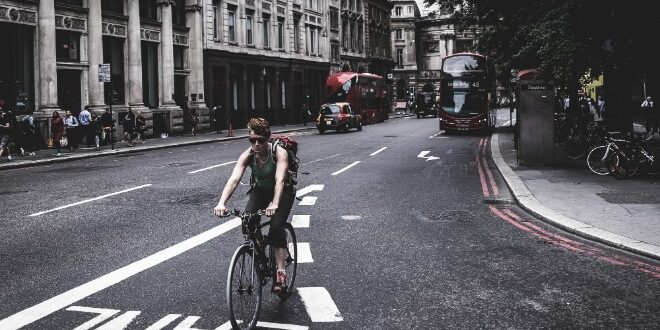Rebecca Morley attends Cycling Industries Europe’s virtual 2020 Summit to explore the impact of COVID-19 on the bike industry
COVID-19 has undoubtedly changed every aspect of our lives in recent months, from the way we work to how we travel. But it will also have a huge impact on many of our choices post-lockdown, with many Governments actively encouraging a shift to walking and cycling to avoid overcrowding on public transport or people instead choosing to drive. Pop-up bike lanes with protected space for cycling, wider pavements, safer junctions, and cycle and bus-only corridors will be created in England within weeks as part of a £250 million emergency active travel fund – the first stage of a £2 billion investment recently announced by transport secretary Grant Shapps.
But will initiatives like this actually see people change their habits and give up their over-reliance on cars? And what is needed to make this ‘new normal’ a reality? The impacts of the COVID-19 outbreak were discussed at the Cycling Industries Europe (CIE) 2020 Summit, which took place virtually at the end of April, where speakers highlighted the role of industry, technology and cycling in the pathway to recovery.
“We are in very challenging times, but that means we have to learn a new way to work,” began Tony Grimaldi, CIE president. “We need to go far beyond recovery. We need to look at the green, sustainable, economical, successful Europe that we want.”
Technology remains an untapped potential
Paul Lee, global head of research for the technology, media and telecommunications industry, Deloitte, spoke of cycling as a ‘megatrend’ of the 2020s and how technology can be used to make it safer, more attractive and faster.
“It solves problems and also upgrades the every day – that’s what we see technology and cycling doing in combination,” Lee says. Right now, there are over one billion bikes in the world, he continues, but there are only six cities globally where cycling is more than 10% of all journeys.
Reasons for this include a fear of being injured while cycling, not wanting to arrive at work sweaty and the effort required. This is where e-bikes come into play, and why they can be preferable to electric cars due to them taking up considerably less space.
Lee also talks about smartphones and how they can be used to make cycling easier. “There are close to four billion smartphones out there in the world – in the most developed markets about 90% of adults now have one. Part of their functionality is navigation, which can be used to make existing behaviours easier, such as driving, but they can also be used to nudge different behaviours.”

They already encourage people to walk, so the next step is to encourage them to cycle by showing them where shared bikes are, but also showing how fast cycling can be – particularly on an e-bike.
“Technology in a plural sense has many applications for the greater use of cycling, whether that’s e-bikes or conventional bikes,” Lee continues. “There is a lot of potential still to be tapped into, and our view is that by making cycling faster, easier and safer, we would hope that the adoption of cycling would rise, such that it was increasingly regarded as the default option of moving around for as many people as possible.”
A once in a lifetime opportunity
Kevin Mayne, CEO of Cycling Industries Europe, spoke of the ‘series of noises’ that COVID-19 has provoked, with people trying something different in response to the pandemic. “That noise is cycling,” Mayne says. “But what I also hear is people using phrases like: ‘Let’s get back to normal.’”
However, if this ‘normal’ means going back to heavily congested roads, then we will have learned nothing from this COVID-19 crisis and all we’ve been through, he continues. “We will have forgotten that humans need space. They need places to move, places to meet and places to stop.
“If this is normal, we have not understood what the European Green Deal needs. It says we must have sustainable and inclusive growth. It says we must have deeply transformative actions, and that we have to move fast because we only have until 2030 to reduce our carbon emissions by half. If this is our normal, we will not achieve that.”
Mayne says that first of all we need to make this plan for smart and inclusive growth. “Our projects have the best return on investment of any investments in mobility,” he says. A cycling plan can give better health, better public spaces, sustainable local jobs in bike share and bicycle deliveries, in the bike shops that have stayed open during the crisis, and in sustainable tourism that’s dispersed and benefits the whole of Europe, rather than congested hotspots.
“Our taxpayers’ money should not be bailing out failure,” says Mayne. “Are we really going to bail out the airlines again? Are we really going to bail out the car industry because they can’t sell their electric cars?”
This is why Mayne is calling for a €5 billion European e-bike access fund, so that all of Europe’s champion companies in the cycling industry can throw their weight behind a plan. “This is your once in a lifetime opportunity. This is the only time you will have empty streets and you can reset the normal.”
Peering through the gloom
Matthew Baldwin, deputy director general for mobility and transport, European Commission, spoke in a personal capacity of the role of sustainable urban mobility in the EU Green Deal. “So much seems to have changed this year that it’s worth peering through the gloom to see what fundamentals remain in place,” says Baldwin. “And when I do so, I see a bright light that is the future of cycling and the future of sustainability in Europe.

“That’s not just because we’re cycling nuts who are unable to grasp the reality of the new situation, but because so many of the fundamentals of your industry are indeed reinforced by a number of aspects of this crisis.”
We need to ease the congestion, Baldwin continues, both in terms of passenger and freight transport in cities. Cycling produces very low external costs, costs which need to be internalised. Some have calculated that for each one kilometre ridden by bicycle in the city, you create a positive value of eight cents for society, whereas one kilometre driven by car costs 50 cents.
“The humble bike itself is also in the middle of a technological transformation. The e-bike is really now coming into its own with new battery technology, lengthening the feasible commuting distance in our biggest cities,” Baldwin continues.
“Safety remains a concern for lots of reasons, 70% of the people dying on our roads in cities are vulnerable road users – cyclists, motorcyclists and pedestrians. We need to do more to reduce the societal over-dependence on the car. Unless we can boost public transport together with active mobility in our cities, this death toll will, unfortunately, continue to rise. Fear is often cited as the major reason why people don’t cycle to work and that’s why we still see the car prevalent in even short trips.”
So what does this all mean in terms of COVID-19? “I do think that at some not very distant point in the future we will look back at this terrible time in our lives and realise that this is when active mobility turned the corner and started to reclaim its central place in all of our mobility in our daily lives,” Baldwin says.
“The World Health Organisation is telling you to ride your bike during the crisis. And goodness me, it’s happening in those member states which have been encouraging exercise as part of the daily lockdown routine. I’ve never heard so many people talk about how pleasant the city is – even in these awful circumstances. The reduced noise and pollution is being noticed. The fact that you now ride your bike through the centre of Brussels to accompanied by bird song is just extraordinary.
“It’s not always been so easy because there’s not always enough space for everyone to do so. And that’s when you start to realise just how much of our city space has been given up to the car, what someone described to me the other day as ‘car-onavirus’.
“Linked to that of course is the rise of the bike as a key way to get around. I really applaud the bike-sharing companies who’ve been offering, in collaboration with cities, free use of bikes for essential workers in the crisis. Cargo bikes are being used to deliver shopping for those who can’t leave their homes, even urgent medical supplies for hospitals.”
The economy and society will never be the same again, continues Baldwin, but people don’t always mean the same thing when they talk about this. This is why there needs to be a strong case made for cycling if it is going to deliver on its transformational potential. “It’s going to be a difficult period. You’re not the biggest and the most powerful lobby, you’re going to need to be seen, not just on Europe’s streets, but in the corridors of power.”
 BikeBiz Bicycle and cycling retail news
BikeBiz Bicycle and cycling retail news




